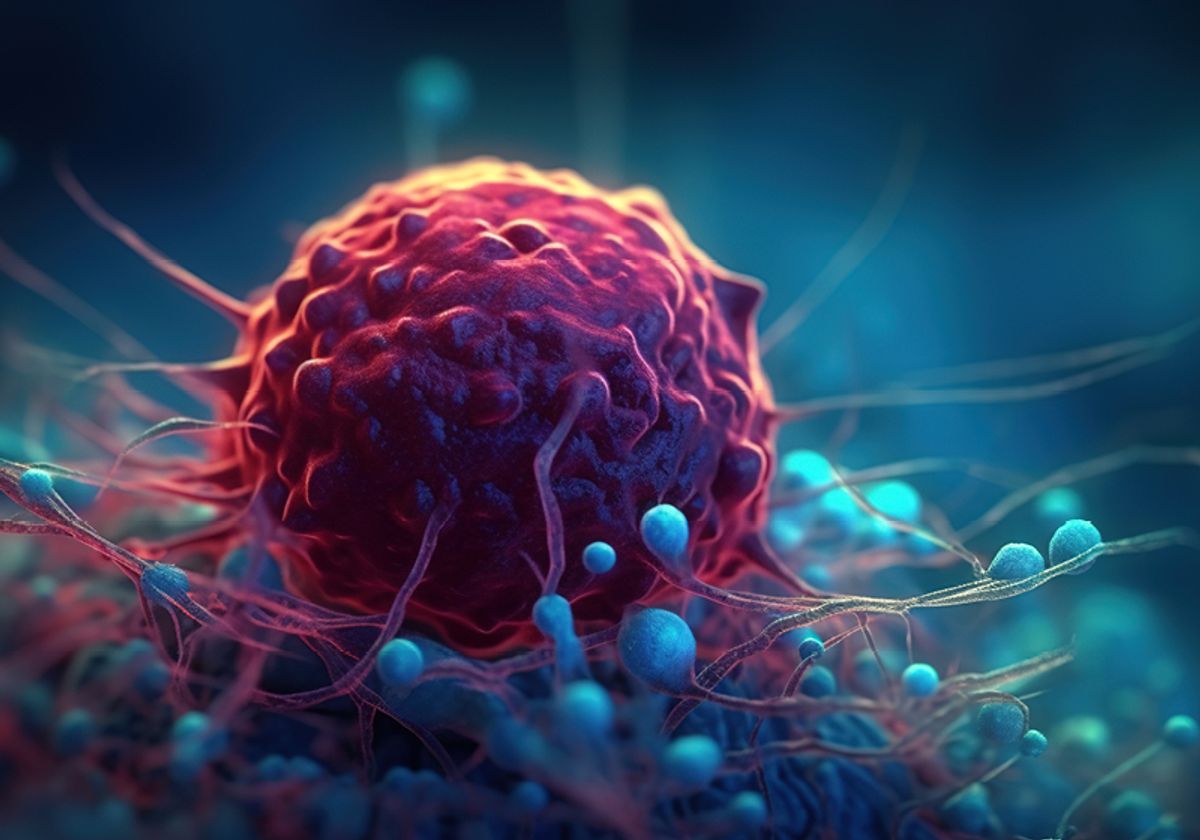Articles

What is Cancer?
Cancer is a disease
that affects the body’s cells—the basic building blocks of the body. Under
normal circumstances, these cells grow and function based on genetic
instructions that regulate their behavior, including growth and death.
When an abnormality
occurs, this process becomes disrupted. Cells begin to reproduce and behave
uncontrollably, which leads to the development of cancer.
Causes of Cancer
There are many types
of cancer, so it is not considered a single disease. Therefore, there is no
single cause. Instead, cancer often develops due to multiple factors—many of
which are related to modern lifestyle habits.
Key risk factors
include:
- Smoking
- Poor nutrition
- Excess body fat
How to Reduce
Cancer Risk
There are several
modifiable lifestyle factors that can help lower cancer risk:
1. Physical
Activity
Incorporate movement
into daily life. Even 30 minutes of simple exercise can be a great start.
2. Weight
Management
Excess weight
increases the risk for cancer and other diseases. Achieving and maintaining a
healthy weight can be supported by following a personalized diet plan such as
the “Four-Week Diet Plan – Dr. Ruba Musharbash.”
3. Choosing the
Right Foods
Be mindful of the
types and amounts of food consumed. Prioritize whole, natural foods, avoid
preservatives and pesticide-exposed foods, and always check nutrition labels.
Cancer-Preventive
Foods
There is no single
food that prevents cancer, but many studies have shown that a diet rich in
fruits, vegetables, whole grains, and legumes significantly reduces cancer
risk.
Nutrient-rich foods
that help combat cancer include:
- Apples – rich in fiber, vitamin C, and antioxidants, particularly phytochemicals.
- Broccoli and leafy greens – excellent sources of vitamin C,
manganese, vitamin K, B vitamins, potassium, magnesium, and carotenoids
like beta-carotene.
- Coffee – contains antioxidants like chlorogenic acid and is a good source
of B vitamins and riboflavin.
- Garlic – proven in studies to protect against stomach, rectal, and
colon cancer.
- Tomatoes – rich in lycopene, linked to protection against prostate,
lung, and breast cancer.
- Green Tea – contains flavonoids, polyphenols,
and catechins, potent cancer-fighting compounds.
- Others – whole grains, various berries, pumpkin, and legumes.
General Cancer
Prevention Tips
- Maintain a healthy weight
- Be physically active for at least 30
minutes daily
- Limit sugary drinks and high-calorie foods
- Eat plenty of vegetables, fruits, legumes,
and whole grains
- Reduce red and processed meat intake
- Avoid alcohol
- Limit salty and highly processed foods
- Don’t rely on supplements for cancer
prevention
- Breastfeed for at least 6 months to reduce
breast and uterine cancer risk
- Avoid smoking completely
Special Nutrition
Tips for Cancer Patients
During treatment and
recovery, maintaining proper nutrition is essential:
Tips for Managing
Nutrition:
- Eat nutrient-dense meals to prevent weight
and appetite loss
- Break large meals into small portions
(e.g., eat part of a sandwich, then eat the rest 30 minutes later)
- Ensure food hygiene when shopping and
preparing meals
- Drink water in small sips throughout the
day
- Focus on breakfast and small snacks
between meals
- Eat in a calm and comfortable environment
Healthy Food
Preparation Tips
- Cook meats thoroughly
- Avoid charred or overly grilled meats
- Prefer boiling or steaming over frying or
grilling
- Wash all produce well; peel when needed
(e.g., cucumber, carrots, apples)
- Use separate, non-wooden cutting boards
for vegetables and meats
- Wash hands and utensils with hot water and
soap
- Limit salt and avoid bouillon cubes
- Cook with moderate oil, preferably olive
or canola oil
Managing Side
Effects During Treatment
Loss of Appetite
- Eat small, varied meals
- Take short walks before eating
- Eat when you feel best
- Avoid drinking too much fluid during meals
- Eat with family in a pleasant environment
Taste Changes
- Brush teeth before meals
- Add light seasoning
- Eat meats at room temperature
- Replace meat with eggs, fish, dairy if
needed
- Zinc deficiency may affect taste
perception
Dry Mouth
- Sip cold water or use a straw
- Try lemon or grapefruit juice
- Rinse mouth with warm saltwater
- Stay hydrated between meals
Nausea/Vomiting
- Avoid strong-smelling foods
- Eat small meals
- Avoid lying down right after eating
- Drink ginger tea
- Avoid eating within 2 hours before
chemotherapy
Diarrhea
- Avoid beans, onions, and high-fiber foods
- Reduce fat and dairy
- Avoid broccoli, peas, cucumbers, and
sugary/fatty foods
- Reduce caffeine intake
- Focus on soluble fiber foods (e.g.,
bananas, peeled apples, sweet potatoes, oats, white bread)
- Avoid insoluble fiber foods (e.g.,
brown bread, bran cereals, raw vegetables, fruit/vegetable peels)
Foods to Avoid
During Cancer Treatment
- Mayonnaise and store-bought dressings
- Raw eggs (e.g., in mousse or sauces)
- Undercooked meats
- Soft cheeses (e.g., brie, camembert, blue
cheese)
- Over-roasted or burned foods
- Unwashed or unpeeled fruits/vegetables
- Fried foods (especially fries)
- Processed meats (e.g., mortadella)
- Unpasteurized milk and cheeses
- Cut melons left for more than two days
- Restaurant-made salads
- Foods not freshly cooked
- High sugar intake
- Juices with added sugar
- Sushi and smoked or pickled foods
Foods to Prioritize
- Lycopene-rich foods (e.g., tomatoes,
watermelon)
- 3–4 servings of fruit daily
- 5 servings of vegetables daily
- Lightly boiled broccoli and cauliflower
- Vitamin C-rich foods (e.g., oranges,
grapefruit, bell peppers)
- Fiber-rich foods (adjust if diarrhea is
present)
- Olive and canola oil
- Brown rice and whole-grain bread
- Lightly boiled and peeled vegetables
- Legumes, onions, and garlic (based on
tolerance)
- Peeled and lightly cooked carrots
- Raw unsalted nuts (walnuts, almonds)
